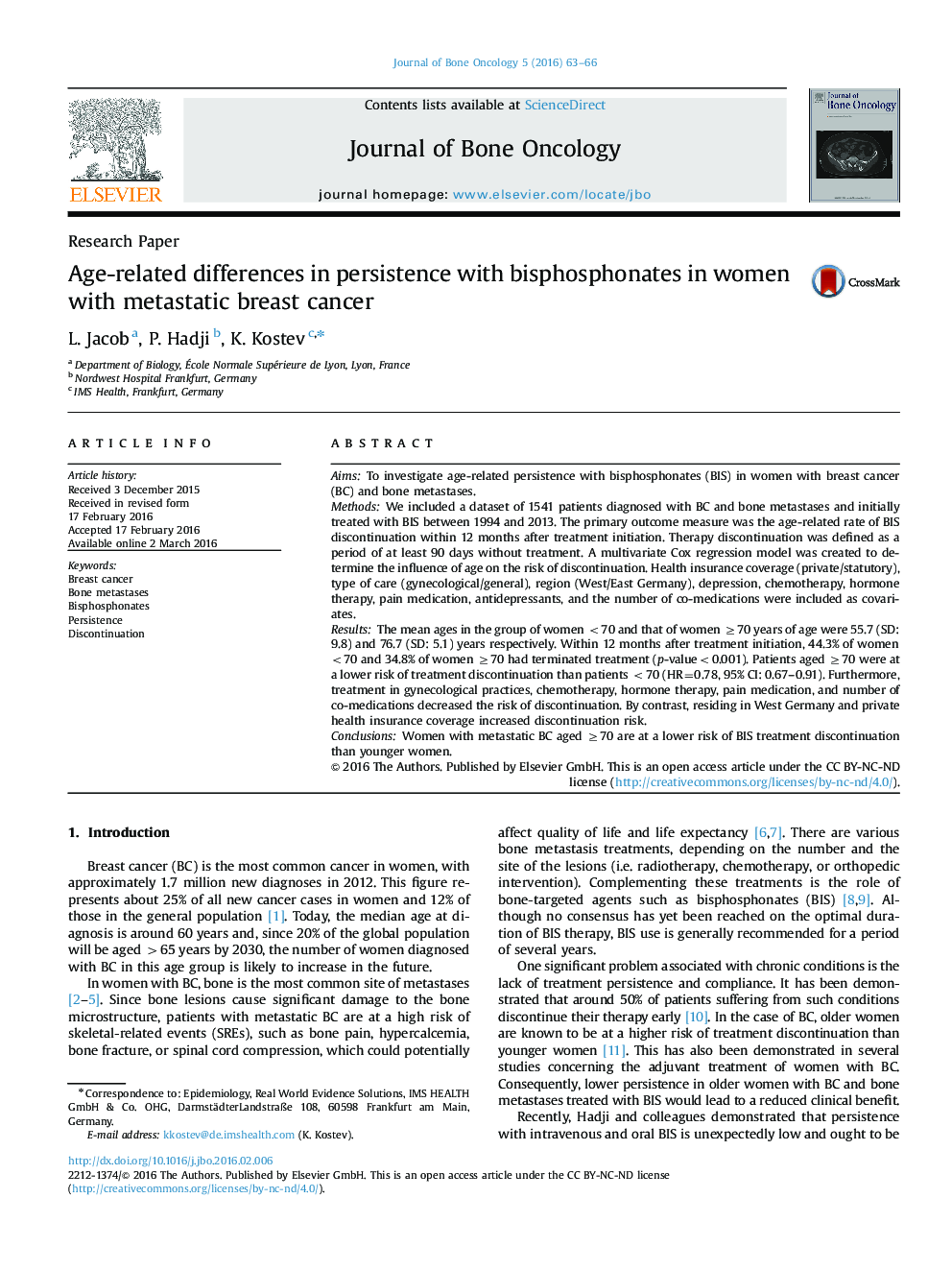| Article ID | Journal | Published Year | Pages | File Type |
|---|---|---|---|---|
| 2136074 | Journal of Bone Oncology | 2016 | 4 Pages |
AimsTo investigate age-related persistence with bisphosphonates (BIS) in women with breast cancer (BC) and bone metastases.MethodsWe included a dataset of 1541 patients diagnosed with BC and bone metastases and initially treated with BIS between 1994 and 2013. The primary outcome measure was the age-related rate of BIS discontinuation within 12 months after treatment initiation. Therapy discontinuation was defined as a period of at least 90 days without treatment. A multivariate Cox regression model was created to determine the influence of age on the risk of discontinuation. Health insurance coverage (private/statutory), type of care (gynecological/general), region (West/East Germany), depression, chemotherapy, hormone therapy, pain medication, antidepressants, and the number of co-medications were included as covariates.ResultsThe mean ages in the group of women <70 and that of women ≥70 years of age were 55.7 (SD: 9.8) and 76.7 (SD: 5.1) years respectively. Within 12 months after treatment initiation, 44.3% of women <70 and 34.8% of women ≥70 had terminated treatment (p-value<0.001). Patients aged ≥70 were at a lower risk of treatment discontinuation than patients <70 (HR=0.78, 95% CI: 0.67–0.91). Furthermore, treatment in gynecological practices, chemotherapy, hormone therapy, pain medication, and number of co-medications decreased the risk of discontinuation. By contrast, residing in West Germany and private health insurance coverage increased discontinuation risk.ConclusionsWomen with metastatic BC aged ≥70 are at a lower risk of BIS treatment discontinuation than younger women.
